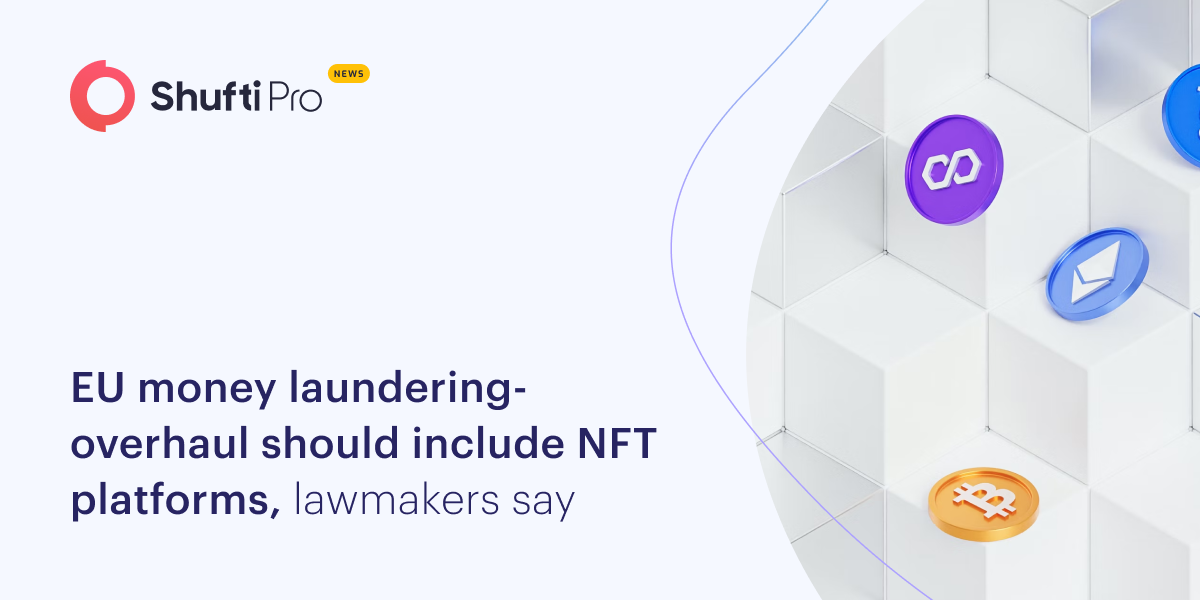EU Money Laundering Overhaul Should Include NFT Platforms, Lawmakers Say

The two crypto legislation adopted last week did not include unhosted wallets and decentralised finance. Left-wing authorities may pursue another attempt as they talk about dirty-money regulations.
According to proposed changes to the law announced on Monday by members of the European Parliament NFT trading platforms should be the subject of the EU anti-money laundering laws.
As per the lawmakers from the Green Party and socialist legislators, the proposed regulation of money laundering seems to suppose adding self-managed cryptocurrency wallets and decentralised finance. Last week, the bloc reached a provisional agreement on new regulations known as the Markets in Crypto Assets Regulation (MiCA) that will require transaction identification checks and licence crypto firms. However, the European Commission was eager to reserve specific money-laundering protocols for a more comprehensive revamp that also addresses industries like banking.
Ernest Urtasun, Kira Marie Peter-Hansen, Aurore Lalucq, and Csaba Molnár of the Green Party, along with the socialists Aurore Lalucq and Csaba Molnár, have proposed changing those laws to make NFT platforms, or anyone who serves as an intermediary for importing, minting, or trading the assets that serve as proof of ownership of artwork or collectables, “obliged entities” under EU money laundering law.
To the same extent as banks, real estate brokers art dealers and other cryptocurrency providers including companies like opeanSea might be interested in assessing the dangers of illicit funding that occur through their networks and moreover, conducting identity checks on new customers and questionable transactions.
Another change that is proposed by the right-wing Alternative for Germany party, Gunnar Beck is the seeking of protection of crypto assets from the effects of the regulations. He stated: “they make it possible for people to diversify their portfolio and protect themselves from risks of [European Central Bank]-induced euro inflation.”
After the array of frauds and scandals in the conventional financial industry involving Denmark’s Danske Bank and Malta’s Bank Pilatus, the EU is getting to overhaul the existing money laundering frameworks, with the addition of setting up a new agency that checks and monitors the lenders.
Suggested Read: NFT Market Skyrockets to $44 Billion as Money Laundering Increases











